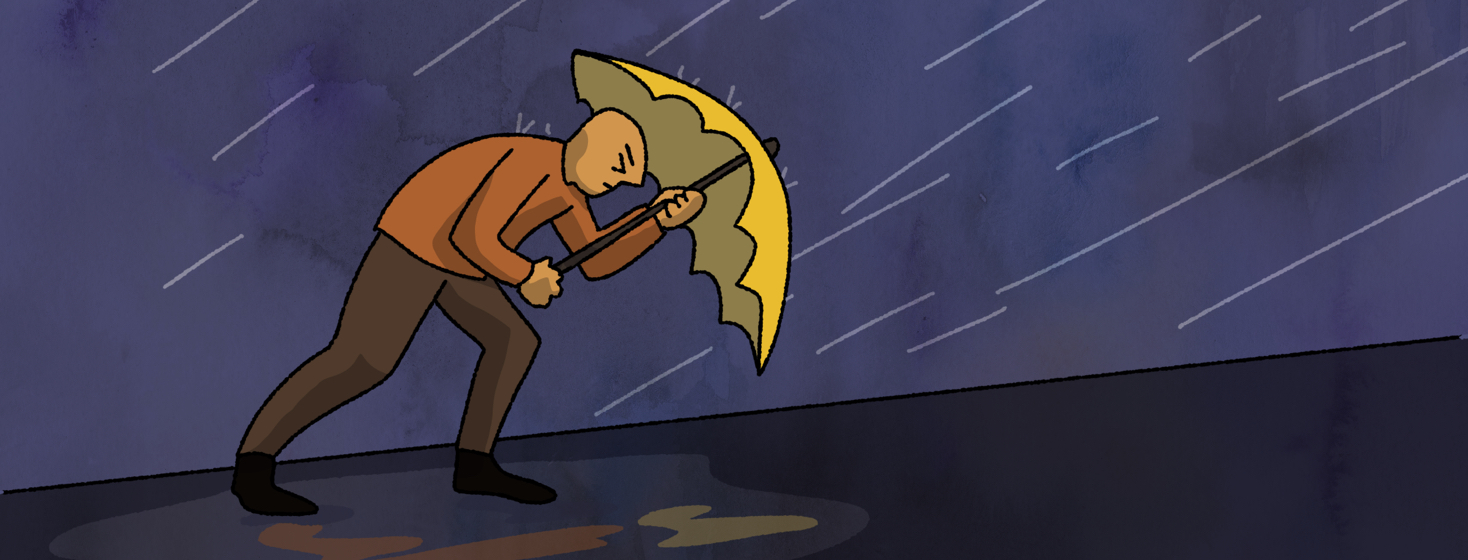Blood Cancer and Resilience: A Necessary Combination
If I’ve learned anything over the past eight years with chronic myeloid leukemia, it’s that we blood cancer patients are a resilient lot.
It’s not as if we have a choice, but resilience is something we have to have in abundance when coping with leukemia and other blood cancers.
Resilience has kept me going
What was once `normal,’ becomes anything but. In my experience, the days, weeks and years are topsy turvy and frequently like a roller coaster. My goal is to hang on even when it seems like the roller coaster car is traveling too fast or about to topple off the track.
As far as I can remember, never has my CML journey been this tough.
Featured Forum
View all responsesThe journey has gotten tougher
In addition to losing my “response,” to treatment earlier this year, I’ve been plagued by medical issues that have negatively impacted my mobility and independence. If that wasn’t enough, I spent this past weekend in the ER, ultimately getting emergency gallbladder removal surgery.
No, there was no real warning this problem was brewing along with everything else. I had been feeling yucky and tired for a few weeks—but yucky and tired is how I roll living with leukemia. So, I attributed my ever-declining health to CML.
But let’s get back to resilience. The dictionary defines it as: the capacity to recover quickly from difficulties; toughness.
Sound about right?
Sidestepping the black hole
It’s sometimes easier to just go into what I call the “black hole,” otherwise known as depression. I’ve been tempted during this past year to just permanently reside there. Just when it feels like a bad situation is being addressed, another one occurs and I take a few steps backwards. It’s very discouraging.
After all this time, I believe I’ve found some effective ways to back away from the black hole.
Embracing solitude to make a plan
To start, sometimes you must embrace solitude, even for a few days, to make sense of what is going on and what you need to do to find a solution to the problem. To accomplish this feat can involve calls to doctor’s offices, appointment making, test taking and asking questions, lots of questions.
With somewhat of a plan in place, I can then re-emerge into the universe, take a few steps back from the pit. I can begin to carry on again, having “resilience” until, unfortunately, the next challenge comes along to try to slap me down.
Being in fight or flight mode is exhausting. However, it's not in my nature to be slapped down for too long. I’ve fought too hard and for too many years to throw in the towel now.
Reaching out when you can
Another strategy might be to reach out to people in your support system for either words of encouragement or a kick in the pants, whatever is needed in the moment.
I luckily have people I know who remind me that I’ve maneuvered my way through murky waters before and I need to swim, not sink.
If, however, a support system is not there for you, professional help or a condition-focused support group may be an answer. In my experience, it is worth a try.
Get the best medical team possible
Finally, in order to carry on, I need to know that my medical `team’ is on board for the roller coaster ride. There is nothing worse than feeling like there is no one on that side of the equation looking out for you. Last year, that was my experience and it was awful. You need people you can trust to help you along the way.
Without being a pain in the you know what, try to ensure that your main caregivers—hematologist/oncologist and primary care doctor—are kept in the loop. Otherwise, it just places all of the burden on you and who needs even more with which to deal? Not me. Not you.
To summarize: make a plan, find your people and consult the professionals.
By virtue of the fact we’ve come this far, we are resilient and strong. And that should give us a boost whenever obstacles arise.

Join the conversation